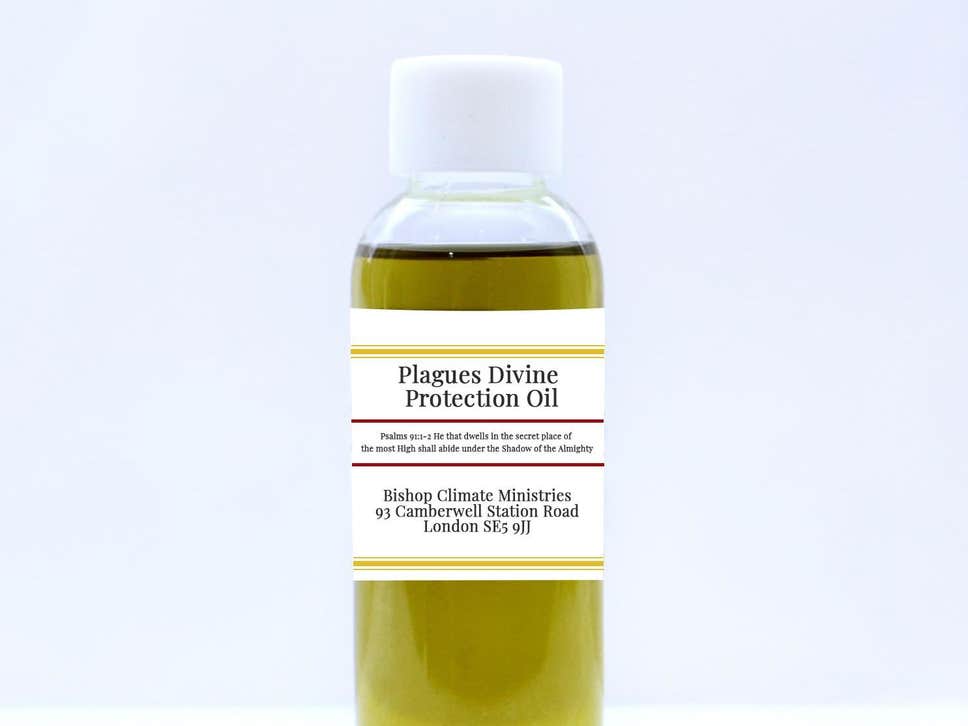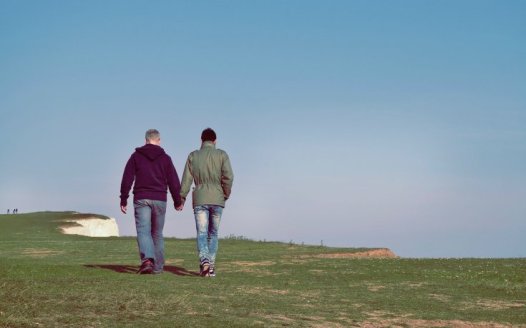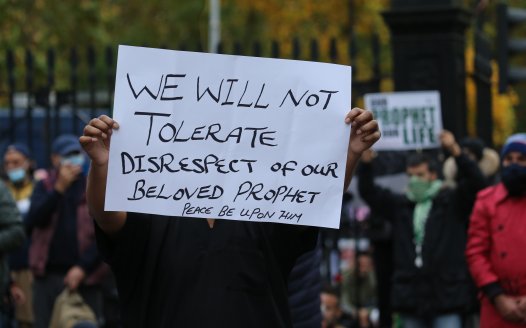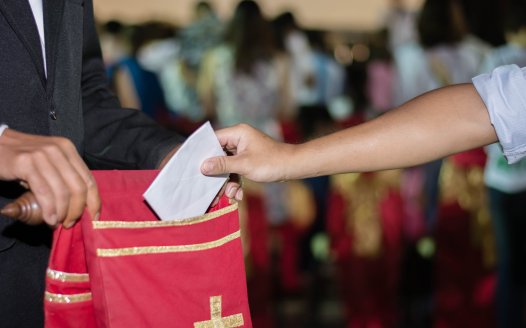Charities can’t sell snake oil. Or can they?
Posted: Tue, 7th Apr 2020 by Megan Manson
If we want to protect vulnerable people from being duped into buying 'miracle cures' from religious charities we should start by reforming charity law, says Megan Manson.
Recent news that a religious preacher has been exploiting the coronavirus pandemic to sell bogus "plague protection kits" made of oil and string has rightly sparked outrage. It represents the worst form of profiteering: abusing people's fear of this potentially deadly disease in order to sell phony protection at the eye-watering price of £91. Worst of all, selling this product could cause real harm by disincentivising those who buy it from taking proper precautions against the disease, or seeking genuine medical help if they start showing symptoms.
What makes this story even more outrageous is that a charity has been involved in selling the kits. The preacher behind the kits, self-styled prophet Climate Wiseman, is a trustee of the Kingdom Church: an evangelical registered charity based in London.
Technically, Wiseman has been selling the kits via a non-charitable entity called 'Bishop Climate Ministries', but because Bishop Climate Ministries and the Kingdom Church share the same address and online donations to the Kingdom Church appear to go into Bishop Climate Ministries' account, there seems to be very little separation between the two. The church's official shop carried a blog which promoted the kits.
This case caught the attention of the press because it relates directly to perhaps the biggest international crisis we've experienced in our lifetimes. But the Kingdom Church's involvement with the "plague protection kit" is not an isolated incident. Its online store sells many other oils that supposedly convey all sorts of benefits, from divine healing to avoiding legal problems. One wonders if Wiseman will rely on the latter if Trading Standards takes an interest in his activities.
The Kingdom Church is not the only religious charity involved in distributing 'miraculous' oil.
The Universal Church of the Kingdom of God (UCKG) is a massive evangelical charity with churches all over the world. The UK branch alone had an income of over £14m in 2019 and has churches in around 30 locations across the country. It too distributes"holy oil". The website claims the oil can be used for "the sick", "the emotionally distressed" and "things that represent difficulties".
What's particularly sinister about UCKG is the manner in which it promotes its holy oil and tickets to its worship meetings. It distributes a publication through people's letterboxes and on buses that's filled with testimonies about people whose medical conditions and wellbeing improved thanks to the holy oil and UCKG's services. The publication is called "Local News" and it looks and feels just like a local newspaper, from its layout to the paper quality to the fonts and pictures used. Only if you read the tiny text at the bottom of page 2 do you see that the paper is produced by UCKG.

You could be forgiven for thinking UCKG's publication is designed to dupe people into thinking it is a reputable piece of local journalism, adding credibility to the testimonies. While the deception may seem obvious to many after a quick examination, it will not be so clear to the more vulnerable – those with learning difficulties, mental health issues, or limited education or life experience.
Many would argue that promises of curing illness and life problems, without a shred of medical evidence, is not in the public benefit. So why have these charities been getting away with it?
Faith healing and charity law
Thankfully, the Charity Commission has told the NSS it is investigating the Kingdom Church over its "plague protection kits". But the commission may find it a challenge to hold the charity's trustees to account, thanks to the privileged position of religion in charity law.
When the story of the "plague protection kits" hit the news, Wiseman's response was: "This is based on the Bible - I'm a Christian and there is a way that the Bible says to protect us from plagues."
And because of the way charity law works, this could be a valid defence.
The most recent guidance from the Charity Commission suggests that, in most cases, any charity that claims to cure people must be able to demonstrate sufficient proof that its methods work. It says complementary and alternative medicine (CAM) organisations seeking registered charity status will need to "ensure that they have evidence to prove" their benefits, and those claiming to cure diseases "will need to provide robust medical evidence".
But other statements suggest there may be a loophole for religious charities:
"The courts have recognised some purposes relating to the promotion of faith healing as charitable. The Commission does not consider that these cases provide a legal basis for accepting purposes which include the advancement of faith healing (or any other form of therapy) otherwise than as purposes for the advancement of religion" (emphasis added).
So if a charity is registered as serving "the advancement of religion", a recognised charitable purpose in law, it appears it can conduct 'faith healing' as part of its activities without having to prove a health benefit.
The Kingdom Church is classified as a religious charity only. UCKG is listed under a number of different classifications including "religious activities", but none of them are related to healthcare.
So if either of these charities are questioned on the validity of their 'cures', they can reasonably argue that distributing holy oil is still charitable because it is done in the name of advancing religion. UCKG covers itself further by including a disclaimer, written in tiny text, at the bottom of one of its pages in its pamphlet: "The UCKG HelpCentre does not claim to heal people but believes that God can through the power of faith."
Prayers or petitions for healing are far from uncommon in religion – indeed, most mainstream religions engage in this to some extent. To prohibit any religious organisation from ever conducting or promoting spiritual activities relating to healing would be far too restrictive of religious freedom. So how do we strike a balance between maintaining the freedom of people to pray and to explore spiritual methods of promoting wellbeing, and protecting vulnerable people from being duped into paying large sums of money for bogus cures?
There's no simple answer, but reforming charity law would be a very good place to start. Removing 'the advancement of religion' as a charitable purpose would not prevent religions from holding 'healing' activities. However, it would mean religious organisations that want the many tax benefits from registering as a charity would be subject to much greater accountability. They would be under the same burden as secular charities to demonstrate a genuine public benefit, as there would no longer be an assumption in law that religion is inherently beneficial. And it would be clear that any religious charity claiming to cure or prevent disease would be required to prove it.
Whatever the Charity Commission concludes in its investigation of the Kingdom Church could have considerable implications for other religious charities, including UCKG. I hope that during its investigations, the commission comes to recognise the conflict between advancing religion and promoting a public benefit, and therefore the problem with recognising the advancement of religion as a charitable purpose.
You can also read the NSS's report on religion and charity law, For the Public Benefit?, published in 2019.
Image via Bishop Climate Ministries.
What the NSS stands for
The Secular Charter outlines 10 principles that guide us as we campaign for a secular democracy which safeguards all citizens' rights to freedom of and from religion.








